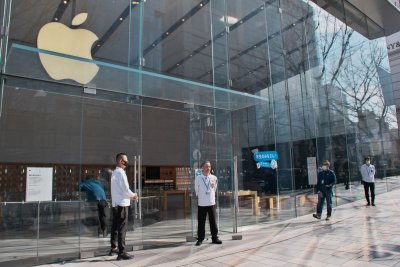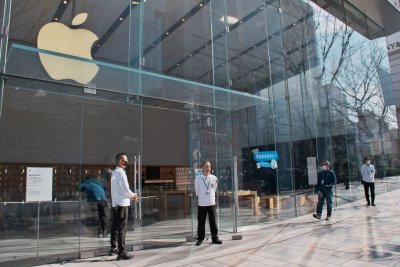Apple will no longer be forced to provide the United Kingdom’s government with access to American citizens’ encrypted data, Washington’s spy chief has said, signalling the end of a months-long transatlantic privacy row.
Tulsi Gabbard, the United States’ director of national intelligence, said on Monday that London agreed to drop its requirement for Apple to provide a “back door” that would have allowed access to the protected data of US users and “encroached on our civil liberties”.
Gabbard said the reversal was the result of months of engagement with the UK to “ensure Americans’ private data remains private and our constitutional rights and civil liberties are protected”.
The UK government said it does not comment on operational matters, but that London and Washington have longstanding joint security and intelligence arrangements that include safeguards to protect privacy.
“We will continue to build on those arrangements, and we will also continue to maintain a strong security framework to ensure that we can continue to pursue terrorists and serious criminals operating in the UK,” a government spokesperson said.
“We will always take all actions necessary at the domestic level to keep UK citizens safe.”
Apple did not immediately respond to a request for comment.
The UK’s climbdown on encryption comes after Apple in February announced it could no longer offer advanced data protection, its highest-level security feature, in the country.
While Apple did not provide a reason for the change at the time, the announcement came after The Washington Post reported that UK security officials had secretly ordered the California-based tech giant to provide blanket access to cloud data belonging to users around the world.
Under the UK’s Investigatory Powers Act, authorities may compel companies to remove encryption under what is known as a “technical capability notice”.
Firms that receive a notice are legally bound to secrecy about the order unless otherwise granted permission by the government.
Like other tech giants, Apple has marketed its use of end-to-end encryption as proof of its steadfast commitment to the privacy of its users.
End-to-end encryption scrambles data so it cannot be read by third parties, including law enforcement and tech companies themselves.
Governments around the world have made numerous attempts to undermine or bypass encryption, saying that it shields serious criminals from scrutiny.
Privacy experts and civil liberties advocates have condemned efforts to weaken the technology, arguing that they treat innocent people as potential criminals and put the privacy and security of all users at risk.
John Pane, chair of the advocacy group Electronic Frontiers Australia, welcomed the UK’s reversal as a win for digital rights and safety.
“Were Apple to create a backdoor to its encrypted user data it would create a significant risk which could be exploited by cybercriminals and authoritarian governments,” Pane told Al Jazeera.
“EFA believes access to encryption technologies is vital for individuals and groups to be able to safeguard the security and privacy of their information and it is also fundamental to the existence of the digital economy. The right to use encrypted communications must be enshrined in law.”


